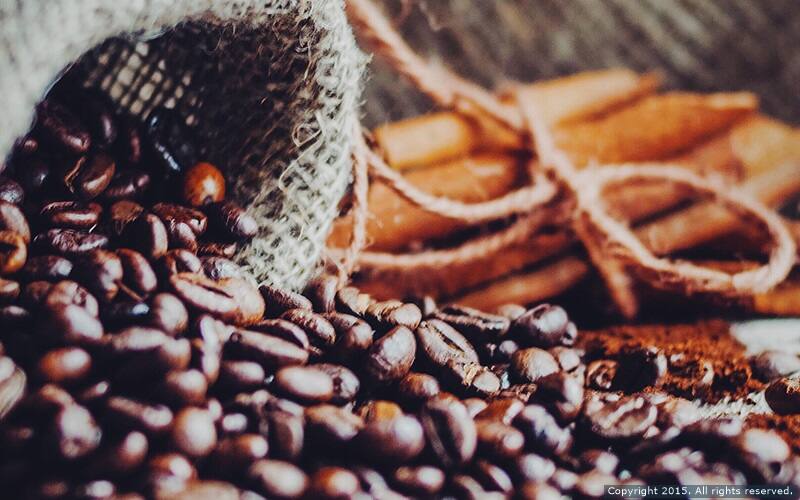
Originally published in VolleyballUSA
When we wake up in the morning, many of us reach for a cup of coffee to kick-start our day. When we hit that afternoon slump, again, many of us turn to coffee as a pick-me-up.
Coffee beans and coffee are the most common sources of caffeine, but it is found naturally in several other leaves, seeds and fruits. It can also occur as a food additive in processed foods such as instant coffee, tea, chocolate, colas, candies, energy drinks, bars, chocolate and chewing gum. It is also an ingredient in many over-the-counter medications such as pain relievers, diet pills and cold remedies.
The amount of caffeine in foods and drinks depends on many factors. According to the U.S. Food and Drug Administration (FDA), the average American drinks between two and four 8-ounce cups of coffee per day, or roughly 300 milligrams of caffeine. That is viewed as moderate consumption.
Caffeine is generally considered to be the most commonly used drug, and many people develop a tolerance for it over time. As that happens, intake must be increased to achieve the desired energy jolt, perk in mood and enhanced focused.
How much is too much? Current guidelines recommend that healthy adults limit themselves to 400 milligrams of caffeine per day – or fewer. That’s roughly four 8-ounce cups of coffee. Due to the limited research on caffeine consumption in adolescents, intake should be conservative. Teenagers and younger kids should avoid energy drinks or other sports beverages with caffeine. Consult a sports medicine doctor or dietitian for further recommendations.
Potential benefits of caffeine:
- Enhanced endurance exercise performance
- Improved reaction time, concentration and self-perceived energy levels
- Reduced time to complete a set amount of work
- Delayed feelings of fatigue, and lowered sensations of exertion and pain
Potential negative effects of caffeine:
- Anxiety / nervousness
- Overstimulation / jitteriness
- Mental confusion
- Elevated resting heart rate and increased blood pressure
- Restlessness
- Inability to focus
- Gastric irritant
- Insomnia / disrupted sleep
Caffeine in Sport
Caffeine affects various parts of the body in different ways but is most known for activating the body’s receptors that counteract many of the inhibitory effects fatigue has on mental and physical performance. Due to this ability, it is now widely considered an “ergogenic aid” or “performance-enhancer.” The NCAA restricts the amount of caffeine in an athlete’s system to roughly 500 milligrams caffeine two to three hours before an event and will include caffeine during drug testing. Low doses of caffeine (200 milligrams or fewer) have been shown to be ergogenic for many sports, and they also carry less risk of side effects.
When using it to aid performance, caffeine intake should be done gradually and tested in training before used during competitions. Recommended timing and dosage strategies are to consume 1 milligram per kilogram of body weight about one hour before starting training or competition or during longer duration sessions or matches. For example, recommendations for a 150-pound athlete (70 kilograms) would be between 70 to 210 milligrams.
Caffeine in Your Genes
Everyone responds differently to varying amounts of caffeine, so dosing should be individualized. The stimulating effect varies with size, gender, genes and sensitivity to caffeine, but caffeine can be felt as soon as 15 minutes after consumption and can take up to 10 hours to clear from the blood stream. During this time, it may cause some to become jittery, anxious and irritable and may also disrupt sleeping later in the day. On the contrary, many athletes report enhanced cognitive function, increased time to exhaustion and improved performance. Caffeine is not a substitute for food and should never be used as an alternative for insufficient fueling and recovery!
| Product | Caffeine (milligrams) |
|---|---|
| Caffeinated Gum | 10-100 |
| Milk Chocolate Bar (3.5 ounces) | 12 |
| Green Tea (8 ounces) | 15-50+ |
| Energy Gels/Gummies | 20-150 |
| Caffeinated Soda (Cola, Diet Cola) | 35-115 |
| Black Tea (8 ounces) | 42-110+ |
| Brewed Coffee (8 ounces) | 60-150+ |
| Espresso Shot (1 ounce) | 60-200+ |
| Bottled Coffee (pre-made) | 75-200 |
| Caffeine Pill | 100-200 |
| Migraine Headache Medication | 130 |
Be aware these ingredients are common in energy drinks and are also a source of caffeine:
- Guarana
- Yerba Mate/Guayaki
- Guayusa
- Kola Nut
- Cacao
Shawn Hueglin, PhD, RD, CSSD is a sport dietitian with the United States Olympic Committee. She works primarily with team sports based in the Los Angeles area and the Chula Vista Elite Athlete Training Center.
Erica Capellino earned a master of science degree in nutrition, healthspan and longevity from the University of Southern California. She is a registered dietitian currently working as a USA Volleyball Fellow.
